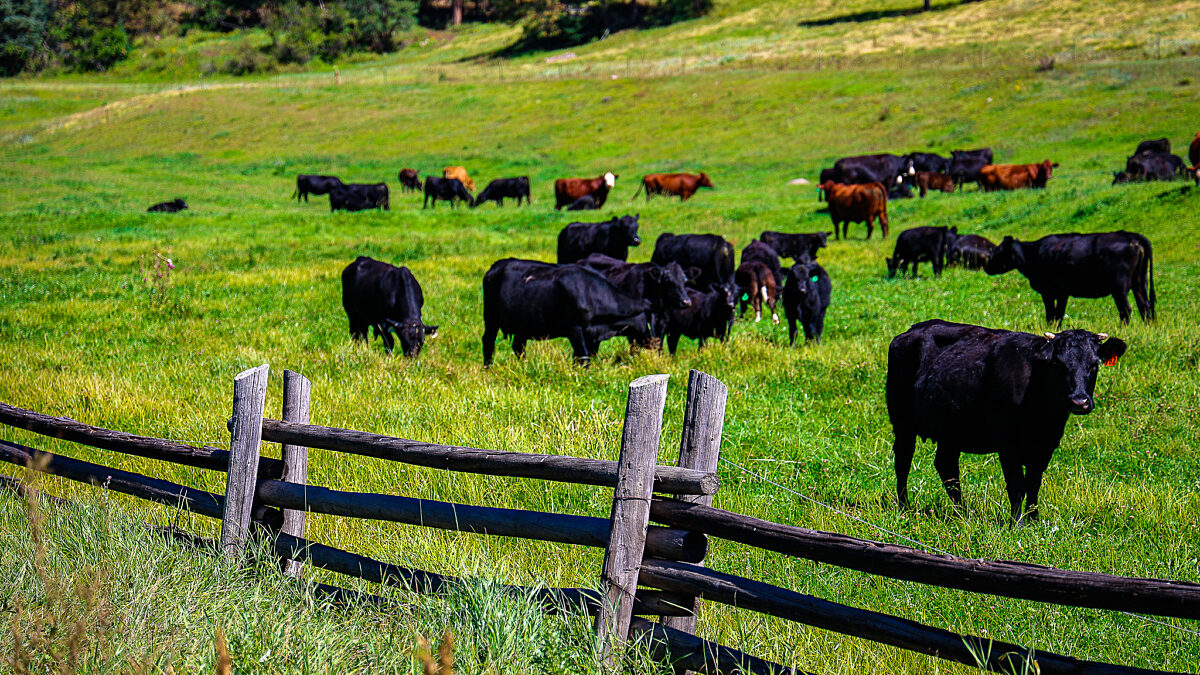Farm Bureau Continues Fight for Fair Cattle Prices
TOPICS
MeatErin Anthony
Director, Communications

photo credit: Colorado Farm Bureau, Used with Permission
Erin Anthony
Director, Communications
Major upheaval in U.S. cattle markets has increased attention on the growing gap between high beef prices and low cattle prices. Always with an eye on how the organization can help its farmer and rancher members, the American Farm Bureau Federation is working aggressively, particularly during the coronavirus pandemic, to make sure livestock producers are fairly compensated for their cattle.
Farm Bureau’s efforts on that front include calling for investigations by the Commodity Futures Trading Commission and USDA into questionable market practices; meeting with both CFTC and USDA officials to convey a strong interest in a robust investigation of any market-distorting activities; and working with government entities and other agricultural organizations to engage in aggressive oversight of cattle markets to ensure producers are paid fair value for their livestock.
AFBF also supports the Trump administration’s initiative to have USDA investigate potential market-distorting tactics.
Lawmakers, too, are looking at the disparity between high beef prices and low cattle prices. Among the proposals being floated to address this concern is one that would require packers to buy a percentage of their weekly cattle purchases on the cash market.
Beyond this approach’s conflict with AFBF policy, a mandatory cash market minimum presents several other problems, not the least of which is the improbability of it providing higher returns for producers.
AFBF policy, crafted by farmer and rancher delegates to the organization’s Annual Convention, opposes a mandatory minimum for negotiated cattle slaughter because it would restrict producers’ ability to enter into progressive, value-added cattle pricing arrangements and contracts.
“Mandates on cash trade ultimately limit the use of the alternative marketing agreements that allow producers to respond to consumer-driven market demands,” explained Michael Nepveux, AFBF livestock economist.
Nepveux also noted there’s no simple way to alleviate COVID-19’s unprecedented external shock to the overall food system.
“No amount of cash trade would provide relief from these supply chain challenges,” he said.
Additionally, a mandatory minimum would require expanded federal oversight and more regulations for an already heavily regulated industry, with potentially no benefit.
And while cash market trade would boost price discovery – a good thing – it would not necessarily increase the prices producers are paid, which is the issue the proposal’s proponents say it is designed to address.
“We can and should promote a more robust price discovery system, but not at the expense of a producer’s ability to use value-based, consumer-driven marketing arrangements,” Nepveux said.
In fact, mandating a minimum number of cash purchases could end up costing producers and consumers. A recent white paper by Colorado State University’s Dr. Koontz indicates a mandatory policy of 50% minimum negotiated cash transactions would result in a $2.5 billion loss to the industry in the first year, and an overall loss of $16 billion over 10 years.
Several additional studies conducted by academic faculty at various land grant institutions on the costs and benefits of alternative marketing agreements and the impacts of mandatory minimum negotiated trading volumes show that limiting the use of AMAs by the beef industry will decrease efficiency, increase processing and marketing costs, and could potentially reduce beef product quality.
Another problem with the proposal is that the impact would be uneven across different regions of the country because negotiated trade is more common in certain states, such as Nebraska and Kansas, which have seen their negotiated percentage range from 40-75% in recent years. Other states typically have very little negotiated trade. In Texas and Oklahoma, for example, negotiated trade accounts for only 5-8% of cattle transactions. Nationally, negotiated trade sits around 20-23%.